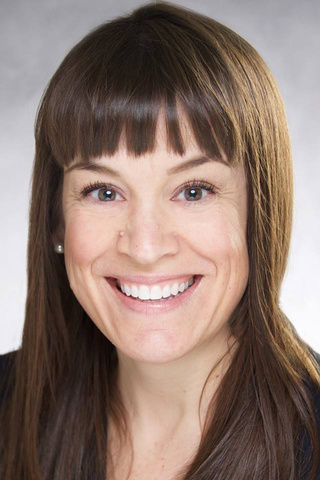
Staff Spotlight – Jodi Graff
Jodi Graff is a champion of mental health. She knows it’s important to talk openly about our stressors and to hardwire support structures into our campus community. Graff carries a dual role in the Carver College of Medicine as the Administrative Director of the Office of Graduate and Postdoctoral Studies (OGPS), and the Administrative Director of the Biomedical Sciences Graduate Program (BSP). This positioning provides her with a unique perspective, where she supports h both learners and faculty. Graff’s colleague Darren Hoffmann, Associate Professor of Anatomy & Cell Biology, shares “Jodi occupies a unique set of roles in the University that position her as an ideal mental health champion. These roles give her both the birds-eye view of our systems and practices, and the on-the-ground view of how everyday actions impact students’ lives. Not only is she a student support advocate, but she also maintains an awareness of the well-being of those of us who lead programs, teach and support students. She is a vital hub for everyone who has anything to do with graduate training in our college.”
When it comes to program design, Graff has worked to thoughtfully incorporate a focus on mental health throughout the student life cycle including recruitment, enrollment, and all the way through graduation. Graff states “It [mental health] is integrated from the get-go. Our website, brochures, and presentations share the offices on campus that support students. They are advertised and highlighted in our social media channels. You start receiving that messaging and story from the beginning. Then it becomes even more detailed as you are applying and it's a part of the admissions interview. When folks come to campus, we have presentations around mental health topics. It takes multiple touches for someone to receive it or to absorb it in some way”. Hoffman adds “Jodi makes space for conversations about student success, student struggles and student well-being at times when others wouldn’t necessarily think to do so: orientation events, recruitment interviews, etc. This is so smart – she understands that this attention to well-being is how we excel at Iowa, and how we recruit and retain the best students”.
The messaging continues after acceptance into the program by incorporating several programs and events into orientation and professional development seminars throughout the year given by university resources and experts. Programming includes a first generation round table that discusses stressful situations and skills to address them, a Peer-Advisor-Leader program that pairs incoming graduate students with a senior student who has received training on navigating difficult issues in graduate school, and presentations from alumni that share their experiences and trajectory. Graff shares “It is helpful to see parts of yourself in others, both visible and invisible identities, and be able to see that nothing is linear... Its more zig-zaggy and up and down. It's the get knocked down 7 times and get up 8. It helps with anticipation, so folks are ready. We're developing the next generation of leaders that will have the skills to support the whole student”.
The goal of this systematic approach is not to make students the experts in mental health but to empower them to notice when they, or others, are in distress and to develop help seeking behaviors. This approach strengthens awareness of ourselves and the people around us. It makes those experts and resources known and lets folks know it’s okay to take advantage of them. Graff states “We know it can be isolating in the hierarchy that's set up in higher education. Being a human is hard, then throw in the ambiguity and the competitiveness of a biomedical science graduate program. To flatten the hierarchy, and to be successful, we need to be transparent and shine a light. It's okay not to be okay”.
When asked how she is successful in building coalition to adopt this approach Graff shares “My passion and skills include infusing diversity, equity, and inclusion principles into initiatives for more inclusivity. I surround myself with experts that also use that lens. That integration, intentionality, and strategic planning is supported and encouraged by leadership”. Graff adds “Systems of oppression will create and reinforce health inequities. We need to intentionally be part of a community that seeks to support mental health, so that we can counteract that. It’s about empowering folks with the tools for improved health”. For anyone looking to build these types of supports into their own unit, or program, Graff recommends connecting with the resources we have on campus, including the Scanlan School of Mental Health, “Attend a workshop or a seminar, make suggestions and ask leaders within your unit how you can help”.